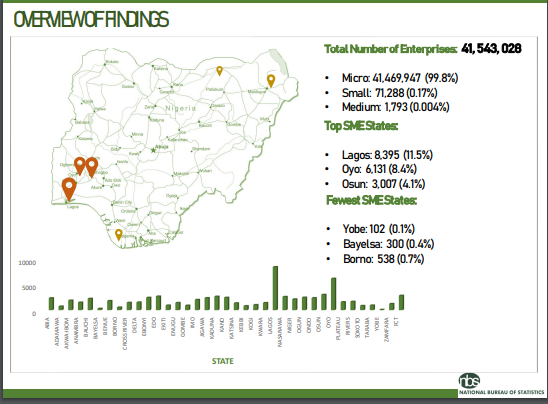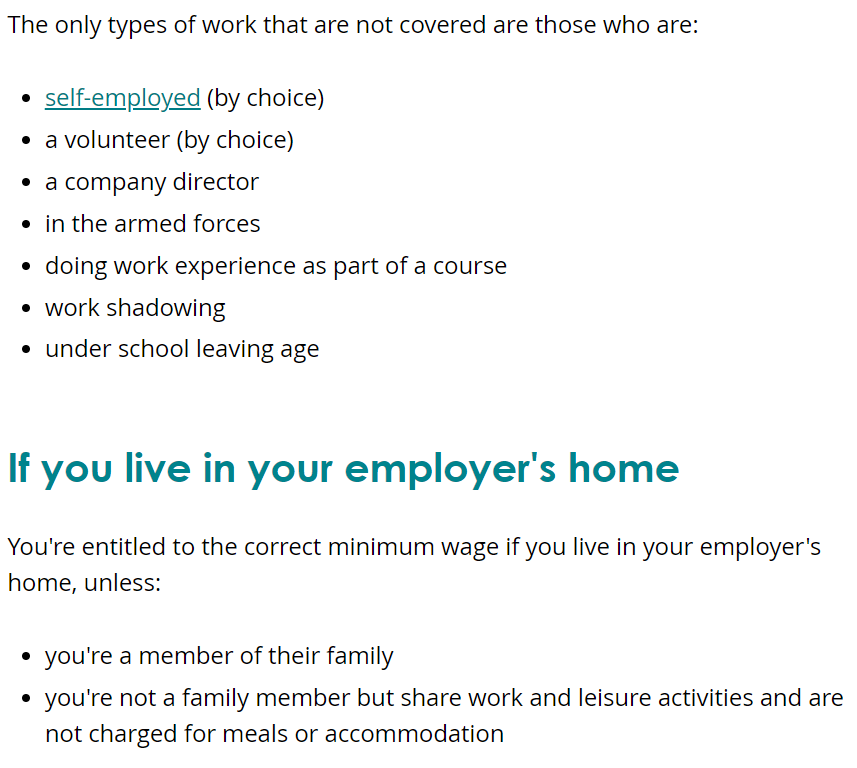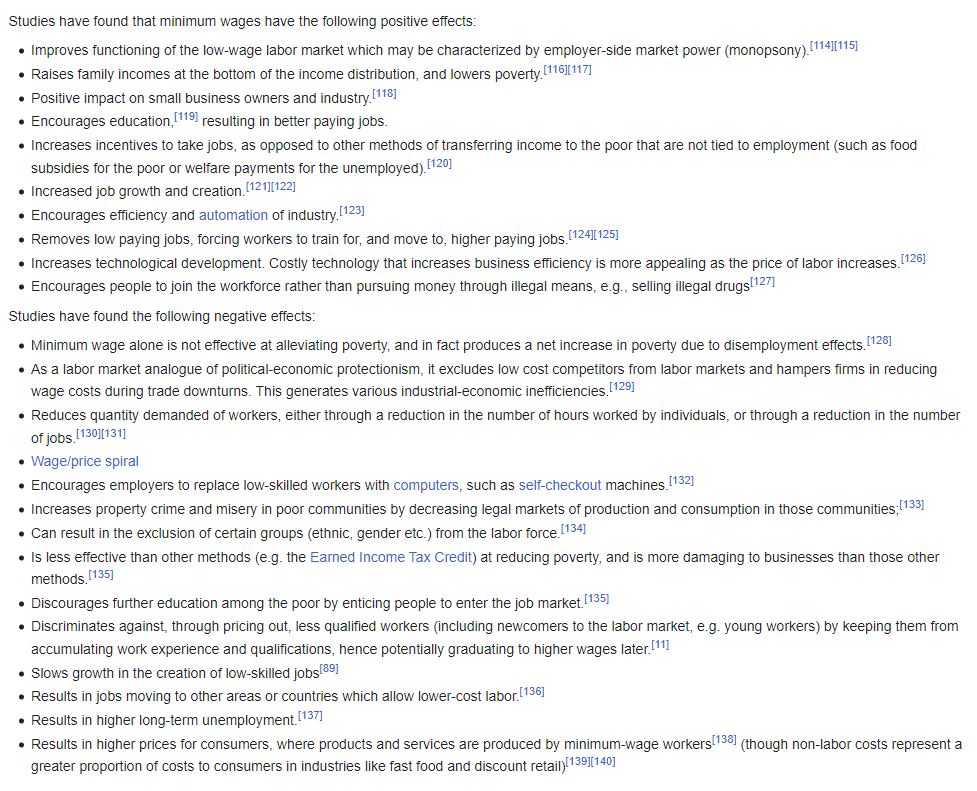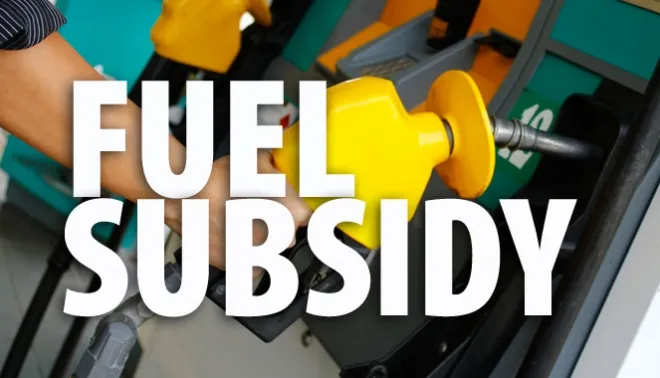The harsh realities of the removal of petrol subsidies are already evident across the country with sudden increases in transport costs and the resultant inflation in the prices of foods and goods.
In view of this, President Bola Tinubu’s administration is showing readiness to increase the minimum wage paid to workers to ameliorate the austerities inherent in the new move, yielding to one of the conditions labour unions stipulated to accept the no-subsidy regime.
While the proposed minimum wage increase may reduce the financial hardship imposed on workers earning meagre incomes, the country’s law excludes over 80% of workers in Nigeria from the new minimum wage, according to Dataphyte estimates.
The National Minimum Wage Act, 2019 exempts companies “employing less than 25 persons” from paying the minimum wage to its workers.
Also, persons working on a part-time basis, commission or piece rate are excluded.
The law also excludes “workers in seasonal employment like agriculture” from being paid the minimum wage.

Source: https://placbillstrack.org/
Under Nigeria’s current minimum wage law, persons working in Micro enterprises would not be eligible for any minimum wage increase, because Micro Enterprises employ less than 10 persons, according to the National Bureau of Statistics (NBS) classifications.
Also, about half of those working in Small enterprises would not be legally qualified for a minimum wage increase, because they work for companies that employ 10 to 24 persons. The upper range of Small enterprises employs 25-49 persons.
.webp)
Source: NBS
Except the exemption clause is removed from a new wage law, only persons working in Medium and large enterprises would be eligible to earn the proposed new minimum wage rates, because they work for establishments that clearly employ 50 persons and above.
Nigeria excludes 84% of its workers, who work in Micro Enterprises, from minimum wage
Workers in Micro enterprises account for 84% of all employed persons in Nigeria, as of 2016.
The Ministry of Industry, Trade and Investment disclosed that “Nigeria’s over 37.07 million micro, small and medium-scale enterprises, MSMEs, account for more than 84 per cent of jobs in the country.
“These enterprises also account for 7.27 per cent of goods and services exported out of the country.”
Interestingly, “of the total number, micro-enterprises account for the bulk of the MSMEs in Nigeria, with 36,994,578 enterprises (about 99.8 per cent), while small enterprises took 68,168, and medium enterprises 4,670.”
The International Labour Organisation (ILO) also confirmed that micro, small and medium enterprises (MSMEs) account for 84 per cent of employment in Nigeria and 96 per cent of businesses, contributing 48 per cent of Nigeria’s National Gross Domestic Product.
By 2017, the Micro, Small, and Medium Enterprises (MSME) National Survey 2017 Report of the NBS also found out that 41.46 million (41,469,947) or 99.8 per cent of the 41,543,028 MSMEs were Micro Enterprises.
Small enterprises were a tiny 0.17% while Medium enterprises were an insignificant 0.004% of the total MSMEs.

Source: NBS
Thus, when the Ministry of Industry, Trade and Investment and the ILO affirm that MSMEs employ 84% of the total labour force in Nigeria, it is another way of saying that Micro enterprises employ 84% of Nigeria’s workers.
The only problem is that these Micro enterprises employ less than 10 persons each, and are exempted by law from paying their workers, 84 per cent of Nigeria’s workforce, a minimum wage.
Yet, these 84 per cent majority of workers that are abandoned to face the hardships that petrol subsidy removal visits on the vulnerable public are Nigerian workers too. And the Labour Unions clamouring for a minimum wage increase, in order to forfeit the subsidy on petrol, do not speak for them, yet.
Will Bola Tinubu break his promise to pay a Living Wage to these 84% of Nigerian workers too?
Two days before his inauguration, President-elect Tinubu promised: “In the Nigeria I shall have the honour and privilege to lead from May 29, workers will have more than a minimum wage. You will have a living wage to have a decent life and provide for your families.”
Now in the midst of the subsidy removal controversy, the spokesman for Tinubu’s government’s delegation to the meeting with Labour, Dele Alake, also hinted at the government’s readiness to make true President Tinubu’s assurances to workers on Workers Day – to review the minimum wage upwards and closer to a living wage.
Mr Alake said: “The TUC that attended today’s meeting presented a list of demands and those demands we have studied and we are going to present to Mr President, for his consideration.
“Now, the most important and top priority on the list which the government is also looking at very seriously and the president has announced before, is the issue of the minimum wage which the Labour movement has demanded is the consequential impact of this removal of subsidy.”
Although the National Executive Council of the NLC was not in this last meeting of the TUC with the Federal government representatives, the President of the Ekiti State NLC Chapter, Kolapo Olatunde, had considered wage increase as the only way out of the petrol subsidy removal, if other options fail.
“I tell you, if subsidy is removed as things are, our minimum wage can never be N30,000 again; we will not take anything less than N100,000. That is the only way workers will be able to cope with the multiplier effects of subsidy removal.”
“If the subsidy is removed, I am sure a bag of rice which is now about N40,000 will sell for N100,000 because the transport fares and cost of all other things will have skyrocketed [sic],” the NLC leader said.
In its own list of demands, the TUC raised the new minimum wage bar from N30,000 to N200,000.
“The minimum wage should be increased from the current N30,000 to N200,000 before the end of June 2023, with consequential adjustments to the Cost of Living Allowance (COLA), like feeding, transport and housing,” TUC stated.
When Labour leaders speak this way, do they speak for their due-contributing union members only or for everyone who labours in Nigeria (including the workers in micro and small enterprises that do not remit dues to them)?
Guiding the way: Should any worker be left out?
According to the UK’s Advisory, Conciliation and Arbitration Service (ACAS), the United Kingdom Law does not discriminate on the basis of the type of enterprise where one works or the type of work one does, unlike the discriminatory minimum wage law (2019) in Nigeria.
.webp)
.webp)

Source: ACAS
ACAS explained further that in the UK, the National minimum wage is paid to everyone under 23 years of age or an apprentice.
Above that, the National Living Wage (which is higher than the National Minimum Wage) is paid to every worker aged 23 and above.

.webp)
Source: ACAS
The detailed non-discriminatory minimum wage regime in the UK, for example, indicates that Bola Tinubu’s promise to pay Nigerian workers a National Minimum Wage and a National Living Wage goes beyond the consultation of the Federal Executive with State Governors, Labour Unions, and the Private Sector.
The people’s elected representatives in the legislature would ultimately decide whether or not the 84 per cent of workers suffering from plain discriminatory minimum wage laws would be included in the N100,000 or N200,000 minimum wage benefit.
And since we talk of a national minimum wage, the people’s representatives in state legislatures need to buy into this inclusive workers’ minimum wage review.
It is easy to imagine that those who formulated the Nigerian Minimum Wage Act, 2019, studied what obtains in other responsible jurisdictions and just began to write the opposite of the norm.
It is not the best labour practice to review workers’ minimum wage only after 5 years when the value of the money has been eroded away by inflation. The UK regulations guide that the minimum wage could be reviewed as frequently as every year.
.webp)
Source: https://placbillstrack.org/
Instead, it is best practice to require the following establishments to pay a national (uniform) minimum wage and living wage:
Establishments in which workers are employed or paid on part-time workers basis and commission or piece rate.
Establishments that employ less than 25 persons – where over 84% of the Nigerian labour force toil every day (and night).
Nigeria can learn from the UK too that workers in seasonal employment like agriculture, and any person employed in a vessel or aircraft, or in any field of endeavour ought to be compensated with the minimum wage and living wage and not the other way.
Now that the harsh realities of the removal of the petrol subsidy cut deep into people’s flesh and finances, only a review of the clauses that exclude over 84% of Nigerian workers from benefiting from any minimum wage or living wage review will make the words of Tinubu to be non-discriminatory, non-contradictory, inclusive and really true.
Guiding the Wage: Economic Views on Minimum Wage
Economists leaning on the simple relationship between demand and supply held that the lower the price of labour (wages) the more the demand for labour, and vice versa. Thus, the popular belief was that if wage increases, the demand for labour will fall leading to increased unemployment.
“Until the mid-1990s, a general consensus existed among economists, both conservative and liberal, that the minimum wage reduced employment, especially among younger and low-skill workers,” a review of David Card and Alan B. Krueger’s Myth and Measurement: The New Economics of the Minimum Wage, noted.
However, Card and Krueger’s empirical study showed instead that the “increase in the minimum wage slightly increased employment” and that “the negative employment effects of minimum wage laws are minimal if not non-existent.”
Other studies showed various positive and negative effects of minimum wages, indicating the need for circumspection as to the extent of the increases in minimum wages.

Source: Wikipedia
However, “In 2006, the International Labour Organization (ILO) argued that the minimum wage could not be directly linked to unemployment in countries that have suffered job losses.
Also, “In April 2010, the Organisation for Economic Co-operation and Development (OECD) released a report arguing that countries could alleviate teen unemployment by “lowering the cost of employing low-skilled youth” through a sub-minimum training wage. A study of U.S. states showed that businesses’ annual and average payrolls grow faster and employment grew at a faster rate in states with a minimum wage. The study showed a correlation, but did not claim to prove causation.”
Again, “Although strongly opposed by both the business community and the Conservative Party when introduced in the UK in 1999, the Conservatives reversed their opposition in 2000.”
In the light of these reviews, the Bola Tinubu administration would do well to approach the extent of the proposed new minimum wage increase with careful consideration and address the exclusion of over 84% workers because of who they work for and the kind of work they do.




.webp)

.webp)
.webp)


.webp)
.webp)
